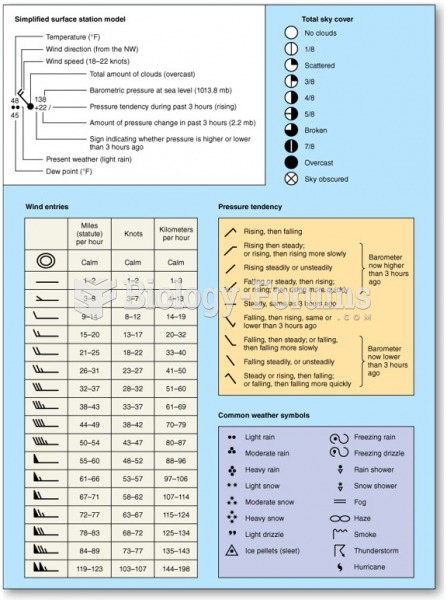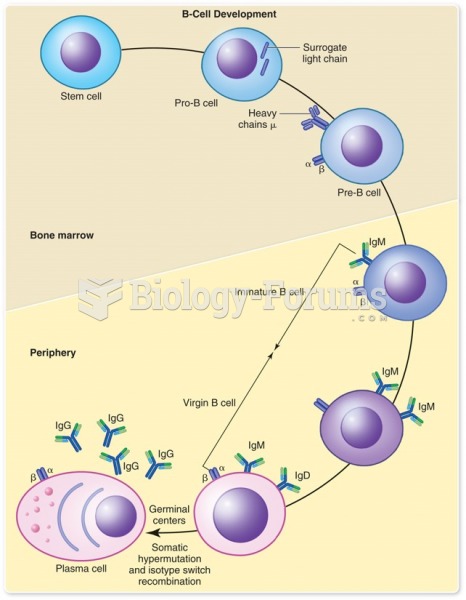|
|
|
For about 100 years, scientists thought that peptic ulcers were caused by stress, spicy food, and alcohol. Later, researchers added stomach acid to the list of causes and began treating ulcers with antacids. Now it is known that peptic ulcers are predominantly caused by Helicobacter pylori, a spiral-shaped bacterium that normally exist in the stomach.
Bacteria have flourished on the earth for over three billion years. They were the first life forms on the planet.
Everyone has one nostril that is larger than the other.
The most destructive flu epidemic of all times in recorded history occurred in 1918, with approximately 20 million deaths worldwide.
Multiple experimental evidences have confirmed that at the molecular level, cancer is caused by lesions in cellular DNA.







